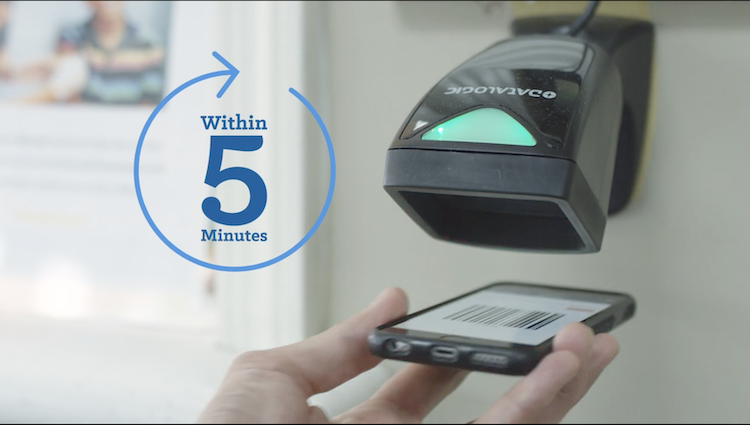FAQ: Allergy Shots

Many patients don’t know much about immunotherapy or allergy shots before they enter our office. Below are some of the frequently asked questions we get from our patients.
What are my treatment options for seasonal allergies?
After a patient has been allergy-tested and diagnosed with allergic rhinitis, our physicians use a three-tier approach for treatment: avoidance, medication, and immunotherapy. Patients who can avoid the trigger of their allergies or if the usual doses of allergy medications can control their symptoms may not need immunotherapy. Immunotherapy, also called allergy shots, is proven effective against inhalant allergies and stinging insect allergies and may be recommended if the patient’s allergies are not under control.
How do allergy shots work?
Allergy shots increase your tolerance to bothersome allergens. By injecting gradually increasing doses of the offending allergen extract, the immune system builds up a tolerance to that allergen. Allergy shots slow down and reduce the production of the IgE antibody. You can think of each shot as adding a brick to the “wall of protection” against things that trigger your allergies.
Immunotherapy has two phases, the build-up phase, and the maintenance phase. Initially, patients are started at a low dose and gradually built up, receiving increasing amounts of the allergens. Once this phase is complete, patients have reached an effective dosage; this is called maintenance. At maintenance, most patients begin to feel the effects and find relief; during this phase, the number of times a patient receives an injection is reduced.
Do I need allergy shots?
After allergy testing and diagnosis, our allergists treat patients with a three-tier approach. Avoidance is the first step to treatment. Using medications like antihistamines and nasal sprays is the second step. The third step is immunotherapy. If avoidance methods or the usual doses of medications control your symptoms, then immunotherapy might not be needed. Allergy shots have been proven effective against inhalant allergies and stinging insect allergies, however, they are not used for food allergies. If any of the following applies to you, then you may be a candidate for allergy shots:
- If the medications to control your symptoms (i.e., antihistamines, decongestants), do not work.
- If the medication used to control your symptoms produces too many side effects.
- If complications (i.e., sinus infections, ear infections) develop.
- If you have asthma triggered by allergies.
- If you are at risk of developing anaphylaxis (a severe reaction that, in some cases, may be fatal) when exposed to an allergen. (As noted above – allergy shots are not used for food allergy.)
- If medications control your symptoms, but your symptoms flare back up every time you try to reduce your medications.
- If you can’t effectively avoid things that trigger your allergies.
- If you would rather take a series of allergy shots than daily medications.
- If you would rather treat the actual problem rather than use medications to control symptoms.
- If the cost of the medications is a burden, allergy shots are very cost-effective compared to the use of daily prescription medications over several years.
How often do you have to get allergy shots?
It varies depending on the build-up schedule the patient chooses to reach their maintenance dosage. After reaching maintenance, patients typically get shots once a week, then to every two weeks after 12 months, then every three to four weeks after 18 to 24 months.
What are the allergy shot build-up schedule options?
We offer three different build-up schedules to help patients reach their maintenance phase: traditional, cluster, and rush. The traditional schedule requires 1-3 shots a week, there are no appointments necessary, and it takes patients 3-6 months to reach maintenance. The cluster schedule requires two appointments a week for 4-9 weeks to reach maintenance, these appointments last for approximately two hours and must be scheduled. The rush schedule requires 1 scheduled full day appointment followed by 16 visits (no appointment required) to reach maintenance.
What happens when coming in for an allergy shot without an appointment?
When a patient starts immunotherapy and chooses the traditional build-up schedule, they will receive notice when their vials are available at their shot room. We have 40+ offices throughout the region, and the office you choose to get allergy shots in does not have to be the same one where your appointment with your physician was if another is more convenient. After you receive notice, visit the office, check-in at the desk, and take a seat. Once your name is called, our staff will go over safety information during the first visit. At your first visit, you will also be given a scan card (similar to a gym or grocery member card) to let you sign in by scanning your card at the next visit. This barcode can also be stored on our patient app.
After the first visit, patients come in scan their card and take a seat so our shot room staff can get their vials ready.

How long do you have to be on allergy shots?
Most people can come off their shots after about three years. The duration can vary from person to person, and some individuals may need to stay on allergy shots longer to receive maximum benefit.
How effective are allergy shots?
Allergy shots are the most commonly used and most effective form of allergy immunotherapy. According to the National Institute of Health, 85% of people with allergic rhinitis will benefit from allergy shots within the first year, lessening their symptoms and need for medication.
Can allergy shots help kids?
Yes! Allergy shots can be started at any age. The age in which shots may be recommended for young children is done on a case-by-case basis.
Research has also shown that allergy shots can prevent children who have allergic rhinitis from getting asthma. Treating the underlying cause of allergies in children can help prevent other sinus problems, improve quality of life, and help prevent your child from missing school due to allergy and asthma symptoms.
Can allergy shots treat food allergies?
No. Avoidance is the only treatment for food allergy. There is no cure. Neither desensitization nor shots have proven to be a safe or effective way of reducing food allergy reactions. If interested in being part of future research for treatments, contact the Family Allergy & Asthma Research Institute.
I’m allergic to my dog. Can allergy shots help allergies to pets?
Yes. Allergy shots are often used to help with dog and cat allergies. Allergy shots have been shown to eradicate pet allergies in as much as 80% of patients who take the full course.
Are there other alternatives to allergy shots?
The FDA has only approved alternative oral immunotherapy tablets for sale within the US. There are now three allergy tablets approved by the FDA that can treat different grass and ragweed allergies.
These are all fast-dissolving tablets that are placed under the tongue and contain specific pollen extracts. They are meant to be taken at least 12 weeks prior to the start of the grass or ragweed season.
Sublingual Immunotherapy is often referred to as allergy drops. The antigens used in allergy drops are the same ones that are used in allergy shots; they are just taken orally versus having them injected into the arm. Research has shown allergy drops to be less effective than allergy shots in the treatment of allergies, and drops pose some additional challenges to patients who are allergic to multiple items.
Currently, allergy drops are NOT approved by the FDA, though their usage is relatively common and completely legal. The lack of FDA approval does mean that insurance will not cover allergy drops, and patients will be responsible for the full cost. Even so, for some patients, allergy drops will still make sense, and we are glad to discuss the pros and cons of allergy drops so you can make an informed decision. Availability of allergy drops may vary by region and physician, please contact your local office if this is something you are interested in learning more about.
Have another question? Call our offices at 800.999.1249 and our staff can help!


